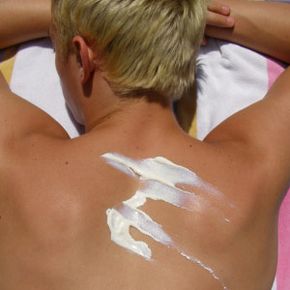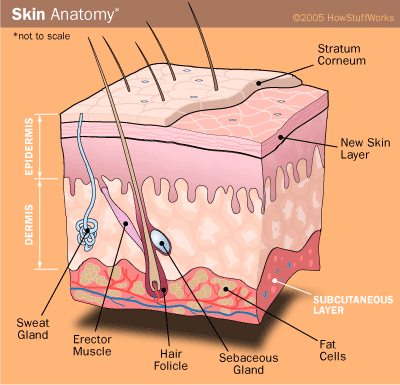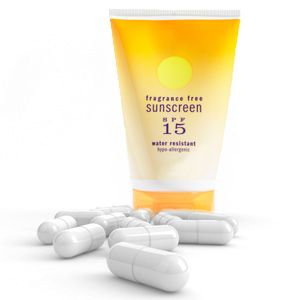Winter is over. The sun is shining, and you're tired of that pale complexion staring back at you every time you look in the mirror. It's time to bake under that great heat lamp in the sky until your white skin gives way to a golden-brown tan. The only problem is that a great tan can take weeks. You may have considered tanning lotion, however, as a quick alternative to spending hours in the sun. But does slathering on some lotion and sticking around indoors really work?
The purpose of tanning lotions, also known as sunless tanners, is to give its users a tanned appearance without actually having to expose them to the sun's radiation. But what exactly do these lotions do to your skin to give a synthetic bronze? The most common ingredient in tanning lotion is called dihydroxyacetone, or DHA. It's simply a color additive that reacts with the amino acids in the surface of the skin, causing it to darken. If you ever experience adverse effects such as rashes or any other allergic reactions, however, stop using the product and report the incident to the United States Food and Drug Administration.
Advertisement
Some tanning lotions may contain certain oils that help you absorb more ultraviolet rays. This speeds up the tanning process by causing your body to produce more melanin, the pigment responsible for your tan. Unfortunately, these types of lotions aren't very safe. When you spend time in the sun, you should be using a lotion that protects you from harmful UV rays, not one that helps you absorb them. If you do decide to use a sunless tanner, check the label to see if it contains sunscreen ingredients and a sun protection factor, or SPF.
See the links on the next page for more articles on skin care and sun protection.
Advertisement


